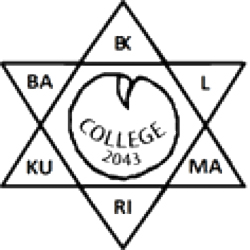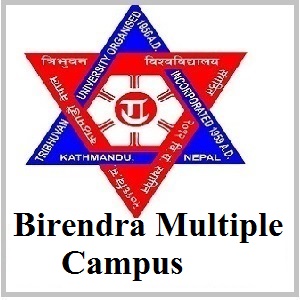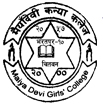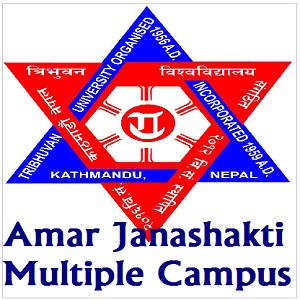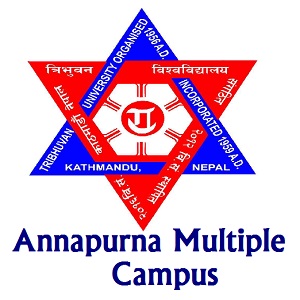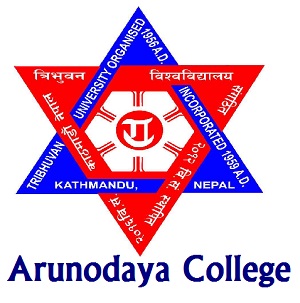Overview
Bachelor of Education (B.Ed.) Program at Bhuwani Shankar Multiple College, Chitwan
Bhuwani Shankar Multiple College (BSMC), Khaireni, Chitwan, offers the Bachelor of Education (B.Ed.) program under Tribhuvan University. The program addresses prospective students' needs and highlights its structure, benefits, and opportunities.
Course Overview
The Bachelor of Education (B.Ed.) program is a four-year academic and professional degree designed to prepare competent secondary-level educators. Students specialize in two subject areas—one as a major and another as a minor—offering flexibility in Nepali, English, Mathematics, Science, Population Education, and more. With a curriculum blending theoretical foundations and practical experience, the program ensures that graduates are well-equipped to meet the demands of modern education systems.
Program Duration
-
Duration: 4 years (annual examination-based system).
-
Structure:
-
Divided into communication skills, professional core areas, specialization major and minor courses, and a teaching internship.
-
Eligibility Criteria
General Requirements:
-
Pass 10+2 or equivalent with a minimum D+ grade in all Grades 11 and 12 subjects.
Specialization-Specific Requirements:
-
Nepali Education: HSE/PCL with Nepali major (200 marks).
-
English Education: HSE/PCL with English or Linguistics major or 50% in General English or Entrance Exam.
-
Mathematics Education: HSE/PCL with Mathematics major (200 marks).
-
Science Education: HSE/PCL with Physics, Chemistry, and Biology (100 marks each).
-
Health and Physical Education: HSE/PCL in relevant areas or pass a physical fitness entrance test.
-
Population Education: HSE/PCL in Geography, Economics, or related fields.
Course Outline
Curriculum Structure:
The program includes five-course groups:
Group A: Communication Skills
-
Courses: 2
-
Marks: 200
Group B: Professional Core Areas
-
Courses: 4
-
Marks: 400
Group C: Specialization Major
-
Courses: 10
-
Marks: 1000
Group D: Specialization Minor
-
Courses: 5
-
Marks: 500
Group E: Teaching Internship/Practicum
Courses: 1
-
Marks: 100
Yearly Breakdown:
-
First Year: Communication skills and introductory courses (600 marks).
-
Second Year: Professional core areas and specialization minor (600 marks).
-
Third Year: Advanced major specialization courses (500 marks).
-
Fourth Year: Major and minor specialization, plus teaching internship (500 marks).
Subjects Offered
Group A: Communication Skills (Compulsory)
-
General Nepali
-
General English
Group B: Professional Core Areas
-
Philosophical and Sociological Foundations of Education
-
Educational Psychology
-
Curriculum and Evaluation
-
Instructional Technology or ICT in Education
Group C: Specialization Major (Choose One)
-
Nepali Language Education
-
English Language Education
-
Mathematics Education
-
Science Education (Physical or Biological Sciences)
-
Health and Physical Education
-
Population Education
-
Geography, Economics, or History Education
-
Political Science Education
-
Social Studies Education
Group D: Specialization Minor (Choose One Different from Major)
-
Early Childhood Development Education
-
Education Management
-
Primary Education
-
Vocational or Non-Formal Education
-
Other options from the major list.
Group E: Teaching Internship/Practicum
-
A supervised teaching internship where students apply pedagogical theories in real classroom settings.
Program Objectives
The B.Ed. The program at BSMC aims to:
-
Prepare skilled secondary-level educators for diverse subject areas.
-
Develop critical thinking and innovative teaching methodologies.
-
Foster understanding of educational theories and practical applications.
-
Encourage lifelong learning and professional development.
-
Equip graduates with leadership skills for academic and administrative roles.
Learning Outcomes
Upon completing the program, graduates will:
-
Master subject-specific knowledge for effective teaching.
-
Apply pedagogical theories and instructional technologies in the classroom.
-
Develop lesson plans, assessments, and teaching strategies tailored to diverse learners.
-
Exhibit professional ethics, leadership, and communication skills.
-
Contribute to educational reforms and community engagement initiatives.
Future Scope
Academic Opportunities:
-
Pursue advanced degrees like a Master of Education (M.Ed.) or specialized educational leadership or counseling certifications.
Career Opportunities:
-
Teach secondary-level classes in private and public schools.
-
Work in curriculum development, education administration, or training roles.
-
Lead non-formal education initiatives, community education projects, or NGOs.
Career Prospects
-
Education (primary, secondary, and tertiary levels)
-
Government and non-governmental organizations
-
Private tutoring or coaching centers
Roles:
-
Secondary school teacher
-
Curriculum developer
-
Educational consultant
-
School administrator
-
Community educator or trainer
Scholarship Opportunities
-
Merit-Based Scholarships: For academically outstanding students.
-
Need-Based Aid: Financial support for economically disadvantaged students.
-
Government and Tribhuvan University Grants: Available through various programs.
Why Choose the B.Ed. Program at BSMC?
-
Expert faculty with practical teaching experience.
-
Comprehensive curriculum blending theory and practice.
-
Affordable tuition with scholarship opportunities.
-
Hands-on teaching internship for real-world experience.
-
Focus on developing 21st-century teaching skills.
Is the B.Ed. Program Right for You?
This program is ideal for:
-
Students are passionate about teaching and education.
-
Those aiming for a stable and impactful career in academia.
-
Individuals seeking to contribute to community development through education.
The Future of the B.Ed. Program
Over the next 15–20 years, the demand for B.Ed. Graduates will continue to grow due to:
-
Increasing emphasis on quality education and teacher training.
-
Rising global and local demand for skilled educators.
-
Integration of technology and innovative teaching methodologies in classrooms.
Key Skills Developed
-
Pedagogical Expertise: Master modern teaching methodologies and educational technologies.
-
Subject Knowledge: Gain an in-depth understanding of specialized subjects.
-
Communication: Develop practical oral and written communication skills for diverse audiences.
-
Problem-Solving: Learn to address classroom challenges with innovative solutions.
-
Leadership: Prepare for administrative and leadership roles in education.
How to Improve Your Study in Education as a Student
-
Active Learning: Engage in discussions, role-playing, and group activities to reinforce learning.
-
Use Technology: Leverage online resources, educational apps, and tools for better comprehension.
-
Time Management: Plan study schedules effectively to balance coursework and practical training.
-
Collaborate: Participate in peer teaching, mentoring, and collaborative projects.
-
Self-Care: Maintain a healthy balance between academics and personal well-being.



